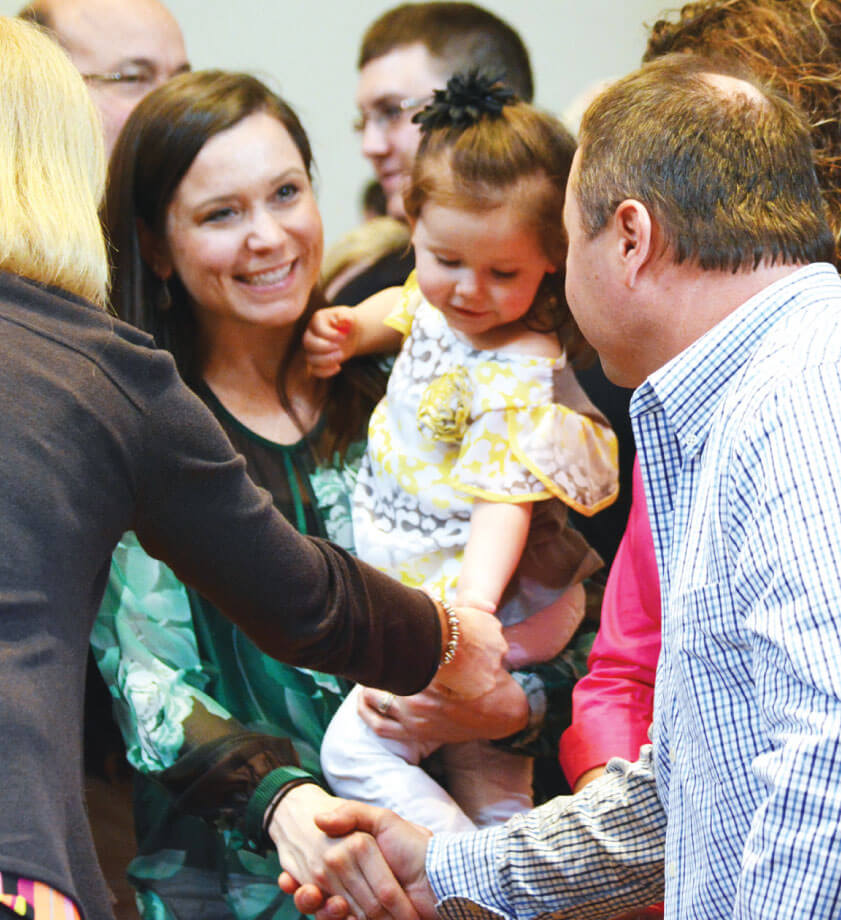
The Pharisees ask Jesus a legal question — does the law of Moses allow a husband to divorce his wife? The Pharisees are following a familiar teaching method — asking a question and arguing how the law applies. Unlike the Sadducees, the Pharisees draw on accumulated oral precedents and not only on the written law in the first five books of the bible, the Torah.
In our time the Pharisees’ question may seem one-sided and outdated. Their question addresses only what the law allows a husband to do. It does not give a wife the equal rights we expect in our country.
Jesus sidesteps this legal controversy hotly debated among rabbis of his time. Rather than look at what is permissible, Jesus focuses on what is ideal. He puts the Pharisees’ question in the context of the creation stories that begin the book of Genesis. In this context men and women are equal.
Genesis 1 asserts that the Creator makes humankind in the divine image and gifts them with sexuality, “male and female God created them” (1.26-27). The creation story in Genesis 2 describes men and women made of the same bone and made for becoming one. “Therefore a man leaves his father and mother and clings to his wife and they become one flesh” (2.24).
The law that allows divorce appears in Deuteronomy 24.1-4. It assumes a husband owns his wife and can send her out of his house. A woman’s sexuality belongs to her husband who expects virginity before marriage, fidelity during marriage, and no remarriage in the case of divorce. To repudiate a wife puts her outside the family social structure, in effect impoverishing her.
Among the rabbis who discuss divorce in Jesus’ time, some allow sending a wife away only in the case of her infidelity. Others allow divorce for trivial reasons, for example, finding a more comely woman. In taking the controversy back to the creation stories, Jesus insists God’s purpose for men and women is union, to become one flesh.
- What pains and problems do divorces create for men today? For women?
- What message for today do you hear in Jesus’ teaching?
Marriage is the most common way Christians live out their discipleship. In marriage spouses promise to love each other faithfully and open their lives to each other’s family and friends. Marriage puts the future in their hands in the obligation to welcome children into their lives.
The Catechism of the Catholic Church describes marriage as a sacrament “at the service of communion.” It builds bonds of blood and networks of love and friendship — the social weave that holds us together. This is the ongoing vocation of marriage.
We humans are social beings. We thrive through interacting and forming relationships. In countless daily ways spouses build their union and at the same time must affirm and develop their separate wholeness. Each must trust the other to bring the wholeheartedness Jesus asks of his disciples to their relationship.
Lighting one unity candle from two candles in a marriage ceremony doesn’t extinguish a couple’s separate selves. When a wife and husband don’t treat one another as equals with mutual respect, then the generosity of one can sour into destructive self-sacrifice.
Marriage requires learning, listening, forgiving one another, reconciling. Our society and Church depend on families and the circles of relationships marriages generate as the building blocks of wider communities.
- How has marriage widened your circle?
- What is one thing you have learned about yourself through marriage?
- How does your commitment as a Christian affect your marriage in practical ways?
Many couples grow together creatively, faithfully, forgiving each other, supporting generous family and civic commitments, enjoying each other. Professor Stephanie Coontz studies and writes about families. Her book The Way We Never Were challenges the nostalgic myth that in the Fifties most people lived in stable, nuclear families with a breadwinner husband and child-caring wife. Some did; some do now. She followed with a second book The Way We Really Are that describes how creatively people form and extend their ties to sustain one another.
The Catholic Church values marriage as a way to follow Jesus. It celebrates and blesses marriage as a sacrament that makes Jesus’ love for us visible in a relationship with a spouse. Marriage vows express a lifelong commitment between two people, which the Church values as indissoluble.
“It is true that general rules set forth a good which can never be disregarded or neglected, but in their formulation they cannot provide absolutely for all particular situations,” Pope Francis writes (#304). Conscience is our tool for discerning what is right in the concrete.
For Francis, mercy is the beating heart of the gospel (#309). He cautions, “At times we find it hard to make room for God’s unconditional love in our pastoral activity. We put so many conditions on mercy that we empty it of its concrete meaning and real significance. It’s the worst way of watering down the gospel” (#311).
Pope Francis holds up the couple that loves and begets life as a true living icon…capable of revealing God the Creator and Savior (#11). The dialogue that makes marriages work requires “a long and demanding apprenticeship” (#136).
- Whose marriages inspire you?
- What wisdom do you see in the permanency of marriage?
